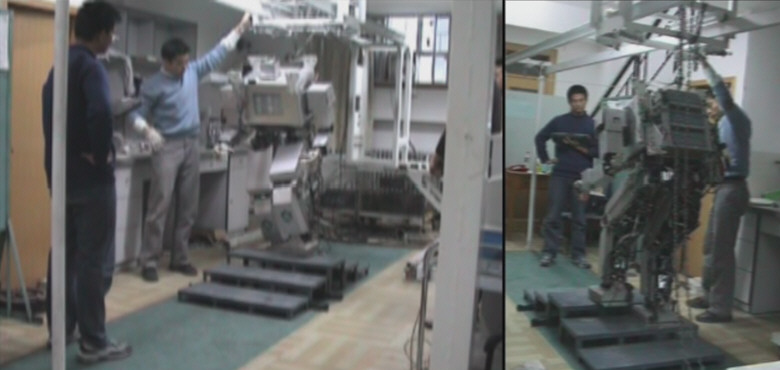From Rii
Gait design and system integration for the Humanoid Robot Research
August 2000 to September 2003
Significance: That was China’s first systematic effect catching up with Japan’s humanoid technology. The THBIP-I robot had 27 independent DOF. It had a real-time distributed hierarchical control structure coordinating with the servo control, gait generation, gesture sensing, vision tracking and task planning subsystems and was able to conduct autonomous walking using its on-board battery and manipulate small objects.
My contribution: I was assigned to mechanism designs when I joined the project as a senior undergraduate student. I was promoted to the project manager at the end of this 3-year project, coordinating nine graduate students, two postdoctoral fellows and four professors from three departments in Tsinghua University. I developed gait generation algorithms, derived kinematics and dynamics of the system, led experiments and meetings, formulated real-time gesture compensation, interfaced with vision tracking and task planning designed by other two departments, and compiled the final report.
